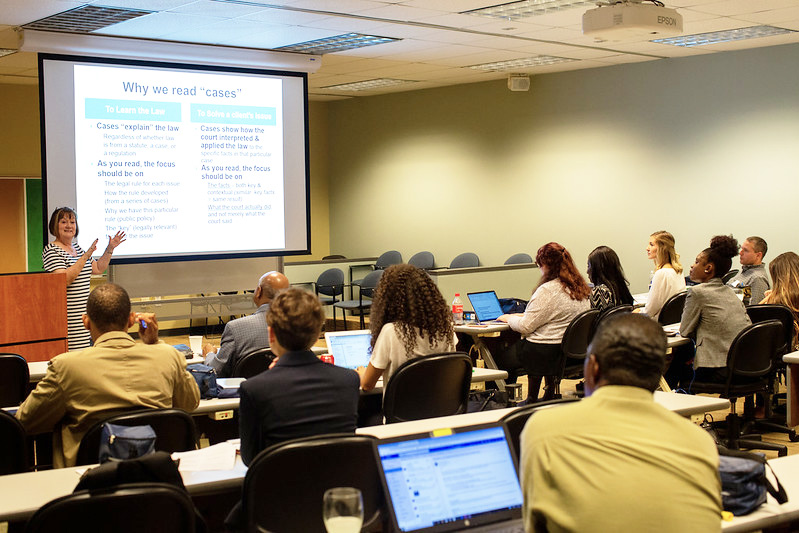Emory Law announces new concentrations for juris master degree

Emory Law has announced curricular enhancements for its juris master degree program—two new concentrations in data, privacy, and technology law; and employment law and human resources. The data, privacy, and technology law concentration covers topics such as privacy, ethics, and the use of artificial intelligence in the workplace; trademark, patent, and copyright law; and licensing and trade secrets. The employment law and human resources concentration explores topics such as employment at will, employees versus independent contractors, privacy in the workplace, worker’s compensation, disability, and discrimination, among others. These new concentrations expand the program’s existing concentrations in business law and health care law.
The juris master degree follows a 30-credit hour program intended for professionals or individuals who want to improve their legal literacy and become more knowledgeable regarding the impact of law and regulation on their industry and field of expertise. Students gain legal knowledge and skills to assess organizational risk, make informed decisions, navigate complex regulatory environments, and contribute in more significant ways to their organizations. Students include C-suite executives, human resources directors, compliance officers, and health care administrators, among others.
“We are excited about these curricular enhancements to our juris master program curriculum,” says Professor Kay Levine, who directs the juris master program. “Our new offerings will be taught by industry experts, and the courses have been designed specifically to engage JM students in cutting edge conversations that are relevant to professionals in many industries.”
The JM program’s online, asynchronous classes are specifically designed for working professionals. Students can also choose on-campus course options. The fully online format is composed of 10 sequential asynchronous courses, with two synchronous online experiences, and can be completed in as little as 20 months. Students taking most of their courses on campus can complete the degree in two sequential semesters or take up to four years.